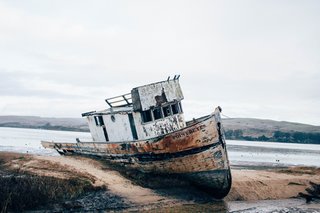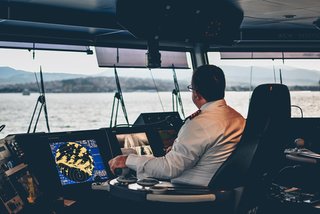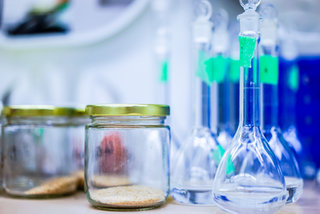CO-CREATION
IN PRACTICE

Circle Sector
LUCA SCHOOL OF ARTS
With Circle Sector, the Inter-Actions research unit of LUCA School of Arts is supporting industries, scientists, policymakers, and private citizens in their transition from a linear to a circular economy. To expedite this transition, Circle Sector has developed an eco-system methodology. The method starts with mapping resources in a regional context and re-combining them in the purview of designing circular products, services, and systems. Theme-based labs are set up to experiment and explore the potential of these regional resources. Pilot projects are developed to field-test and implement the potential of circular business models. The Circle Sector platform is used to share the insights gained during the iterative process of mapping, prototyping, and piloting. During this process, we aim to inspire action in the form of reports, lectures, workshops, and exhibitions. All our resources, labs, and studios form part of the ongoing research; the platform is always open to and willing to elaborate ideas for collaboration.
LUCA School of Arts
CIRCLE SECTOR: A resource map, lab and studio focused on shaping circular ecosystems on a regional scale
Circle Sector is a design and research lab attached to the Product Design programme provided by LUCA School of Arts and the InterActions research unit. The lab offers room for experiments focused on making the circular economy manifest. It connects locally available materials, expertise, and infrastructure by designing circular products, services, and systems in co-creation with residents, companies, and policymakers.
Within the Circle Sector framework, several cases have already been established in collaboration with the industry. Over the past academic year, teams of master’s and bachelor’s students have developed a future study tailored to Veldeman Bedding and the Mecam Group furniture manufacturers. This has generated five prototypes, developed within the principles of the Circular Economy.
PARTNERS: LUCA SCHOOL OF ARTS, MIA-H, Ambiorix, Velda, Mecam, Ecover, Vlaanderen Circulair, Bos Plus
In the Sustainable Scenarios design module, in the second bachelor’s track of the Product Design programme, teacher Ben Hagenaars disseminates the Circle Sector expertise. Students map out circular challenges. In a co-creation process, they design sustainable uses of materials and circular services (labs). They develop and test circular business cases (pilots). They document and record materials and knowledge (library).
Several student projects have served as the basis for additional projects, in which the same students were subsequently involved. For example, within the Circle Sector framework, a shoe repair system has been developed. Students developed the basis for this modular sneaker concept within their lesson assignment. Ben Hagenaars subsequently evolved the project under the Custom Territory research project, in collaboration with external partners MIA-H and Ambiorix. The relevant students were also involved in the process.
In the Circle Sector algae lab, experiments have been conducted involving algae-based bioplastic packaging for Ecover, in collaboration with Atelier Luma and Z33.
Within the framework of the MANUFACTUUR 3.0 exhibition, organised by Z33, five master’s students have investigated new production scenarios for the Spronken Orthopedie company in Genk, a certified manufacturer of medical aids such as prosthetics. During a three-day workshop, the students developed views on what this manufacturer’s future production could look like, factoring in the company’s vision and production process. Each student developed his or her own production scenario and translated this into a concrete prototype.
Custom Territory has also been established within the framework of Circle Sector.
Custom Territory is a travelling collective of fashion makers, designers, and wearers developing such fashion products as sneakers on the basis of locally available raw materials, in collaboration with local actors. This generates “Custom Territories”, which manufacture products with a limited ecological footprint and express the identity of the local context in a tangible manner. This local value chain offers an alternative to the fashion industry that is manifesting itself on a global scale and producing a great deal of waste.
Custom Territory has been established within the framework of the Product Design programme provided by LUCA School of Arts in Genk. Custom Territory has been facilitated with support from Vlaanderen Circulair, the city of Antwerp, and the expertise of Ambiorix.
Added value
Students
- Collaborating on projects with interesting partners from the professional field;
- Acquiring useful contacts, building up a network to get started on the labour market;
- Useful link between research department and education;
- Coming into touch with and being able to use actual material flows.
Teaching staff
- Expanding the network of teachers;
- Collaborating in projects with interesting partners from the professional field, evaluating students in juries, et cetera;
- Exchange of expertise;
- Raising commitment among students with respect to the assignments;
Researchers
- Setting up research projects in collaboration with the professional field, using substantive and technological expertise from the business community
The programme
- In collaboration with the professional field, arriving at a socially relevant substantiation of the curriculum, with academic-level added value appropriate to the programme’s educational attainment;
- Creating visibility for the programme vis-à-vis the professional field, whilst also generating projects that are of interest in terms of recruiting new students;
The professional field
Rather than being commissioned by the professional field on the basis of an actual need, the programme is joining forces with the professional field to produce a result that extends beyond a concrete product. In many cases, the professional field is pleasantly surprised by the unexpected results and the less familiar or less common substantiation of the design process.
Challenges & opportunities
Interdependence
Taking students and the substantiation of a good learning track as the points of departure. The ability to collaborate with the professional field practice alone does not suffice.
How do you communicate the aims and objectives of an educational institution to a partner that has no experience with present-day educational formats and curricula?
Commitment
Start with informal collaboration and evolve jointly to a more structured collaboration. Both the programme and its partners must indicate that they will continue to meet their commitments in the early stages and during the project (in terms of providing support et cetera);
At what stage can/must informal collaboration take on a more formal shape?
Common goal
Creating added value for each partner: an academic-level assignment for the programme / an outcome of the collaboration that is profitable for the professional field partner.
Whereas many programmes focus on the process, companies tend to focus on the result. Should you choose to focus on either aspect in the collaboration, or would it be better to leave this open?
Interorganisational trust: trust between parties, continued pursuance of which is essential.
Expand your own credibility as a partner to the professional field, for example, through your blog, your portfolio, and the research being conducted by the programme. This enables you to build a stronger case for yourself and to make it clear that your capabilities extend beyond carrying out assignments.
How can partners become each other’s ambassador following collaboration?
Open communication and transparency
Expressing clearly what the programme can and cannot do, and that it is important to tie in with the programme’s educational attainment. In other words: working solely as commissioned by the professional field is out of the question.
When engaging in collaboration, many companies request a NDA. How can we accommodate this with the knowledge that the programme or the students would like to share (e.g., in an academic publication or portfolio, respectively)?
General challenge
The collaboration must not disrupt the market or conflict with the interests of alumni. A solution could be to hire alumni for parts of the collaboration.
PROJECT WEBSITE CIRCLE SECTOR
Contact
Academic bachelor’s and master’s Product Design programmes
C-mine Campus, Genk
Wim Buts, Programme Manager, Wim.buts@luca-arts.be
Ben Hagenaars, post-graduate researcher and Product Design teacher, founding coordinator of Circle Sector, Ben.hagenaars@luca-arts.be
READ MORE

Socorro-project
ANTWERP MARITIME ACADEMY
Antwerp Maritime Academy has perpetuated the amalgamation of various specialisms (cf. complementarity between a nautical perspective, engineering research, data processing, and chemical analysis) in a collaboration agreement on corrosion research (Socorro). Each partner is to supply several results, and the partners are collectively pursuing a common goal: elaborating a feasible solution to corrosion prevention and control. The collaborating parties regard an understanding and continuous interpretation of the common goal as a permanent given. Acknowledgement of each partner’s discipline and unremitting engagement foster a positive perspective and are pivotal in the solid completion of the project. Finally, the project has demonstrated the utmost importance of setting down agreements with parties from the professional field on the level of detail to which research results are publicised.
Hogere Zeevaartschool Antwerpen
Seeking out corrosion (SOCORRO): a multidisciplinary balancing act to save the world a few billion euros? (AMA)
SOCORRO is a research and development project initiated under the Interreg 2 Seas Programme. It revolves around corrosion and corrosion management. The project is being carried out by a consortium of 15 partners and subcontractors from four different countries.
PARTNERS: HOGERE zeevaartschool, Ghent University, Katholieke Universiteit Leuven, Southend Borough Council, Sirris, IT and Business Analytics, University of Brighton, Genicap, University of Kent, Cobalt Water EU BVBA, Université d'Artois, Université de Lille, OCAS, Université Polytechnique de Haute France, INRAE
Project objectives
An often-underestimated threat to our economy is steel corrosion, in any kind of industry where water meets steel: the maritime sector, water purification plants, offshore (renewable) energy production, et cetera. For example, 90% of ship failures can be attributed to corrosion (Melchers 1999). Approximately 5 tons of steel per second are lost through corrosion. The additional costs incurred due to corrosion have a substantial impact on the global economy: the IMPACT study (NACE 2016) sets total annual corrosion costs at more than 500 billion EUR for the European Union alone, i.e., generally +/- 3.8% of the European GDP. An economic opportunity report, produced by the European NeSSIE project, shows that on average 18% of the technical operational expenditure (OPEX) of offshore energy systems is related to corrosion. With a projected fixed wind capacity for the EU of 23.3 GW by 2020, this will generate potential savings of 805 million euros by 2020, if all corrosion-related costs are mitigated by fixed wind. The specific result to aim for is a reduction of corrosion related OPEX from 18% to 17% through more efficient corrosion management, which will mean 44 million euros saved (i.e., three times as much by 2030).
However, the way that the industry handles corrosion prevention management is far from ideal. Solutions are generic, and there is no overall awareness of possible cost reductions. Also, any monitoring currently in place measures the effects of corrosion and not the risks: for example, in the shipping industry, sensors are merely used to determine the decrease in ship plate thickness as a consequence of corrosion (DNV-GL 2016) rather than to prevent actual corrosion. Any useful system to combat the corrosion problem should therefore extend beyond the installation of basic sensory equipment. According to Morshed (2015), a corrosion report should not only provide information on the corrosion rate but also on the chemical environment and on the findings during cleaning and repair, as well as a risk analysis. In other words - any sensor system that is being installed should therefore be complemented by a comprehensive, quick and easy management system to measure the local situation in a range of installations, linked to a risk assessment, based on the physicochemical conditions in which the steel resides (Ghalsasi et al. 2016). This risk assessment should also be linked to a lifecycle cost analysis, lead to a better management of the health of industrial installations and infrastructure (Shiegg and Steiner 2010; Wymore et al. 2015) and raise a general awareness that costs can be reduced even further.
The Interreg 2 Seas project SOCORRO (2020-2022) aims to address this gap in data collection in order to improve corrosion management practices. To this end, we have created a simple, rapid, in situ sensor system able to monitor a range of environmental markers over time to determine the risk of corrosion of steel submerged in water, as well as a statistical algorithm to mine these data for an overall corrosion risk estimate – in short, the SOCORRO system. Through a series of industrial demonstrations in a variety of real-world settings (industrial process water, ship ballast tanks, ports, offshore energy platforms, coastal defence), the project will test and validate this algorithm and model the risk of corrosion in these installations. SOCORRO then aims to provide companies with an independent means to assess the corrosion risks in their installations, to increase their awareness and to encourage them to take appropriate preventive actions.
The team consists of a mix of metallurgic scientists, data analysts, process and wastewater management engineers, specialists from the maritime and offshore sectors, managers of installations at risk of corrosion, and experts from research institutes and the business community. The collaboration of a diverse group of experts from different backgrounds and commanding a range of expertise is essential to achieve the project objectives.
PROJECT WEBSITE SOCORRO
Added value
Students
Students who participate in the project (as part of their master’s dissertation research) will experience the international as well as the industrial dimensions of their research. They will also perceive the relevance of their work;
Teaching staff
Teaching staff can underscore the relevance of their course materials because collaboration in this project will offer them the chance to foresee relevant, state-of-the-art examples in their materials;
Researchers
Every research project offers opportunities for the expansion of knowledge and professional networks, for the creation of new ideas and new questions, and of course, at the end of the project, for conference and journal publications (le plaisir de se voir imprimé). In addition, a co-creative project offers the possibility to expand one’s horizons beyond one’s core expertise;
The professional field
Co-creation is not only useful for HEI researchers but also for the relevant industrial sectors if they have been involved in the project from its conception. HEI may deliver a novel point of view. In the SOCORRO project, we study corrosion, which is a multi-billion euros problem with an enormous impact on the economy (3.8% of general GDP, 19% of the added value of the maritime sector). Corrosion management methodologies contribute towards saving money for these sectors. However, we have noticed that many businesses have failed to take up that information, let alone incorporate it into their management procedures. Moreover, HEI/research institutes have more opportunities to invest in the management of explorative innovative projects. Co-creation with these institutes therefore also provides clear added value for the professional field.
Challenges & opportunities
Interdependence
For the Antwerp Maritime Academy, co-creation in research is seen as a way of thinking across the entire chain about themes that each party would otherwise approach purely from its own specialization. In research projects, the Antwerp Maritime Academy is often the only maritime HE institution. In this project, there is clear complementarity with classical engineering research at Ghent University and KU Leuven University; other partners are engaged in data processing or chemical analyses, while the AMA provides input into practical components. The challenge is to keep investing in finding a common language, to make sure that every partner understands what the others need to function. This demands a mindset that is often frowned upon in hyper-specialized environments (such as in research institutes) - being able to have a “helicopter view”.
Commitment
Research programmes (such as Interreg) provide a formalized process by which the commitment of each partner is described in a partnership agreement and in the project proposal that has been granted. However, signing these agreements is only the last step of a long process in which every partner receives a part of the budget in return for delivering a set of deliverables (data sets, experimental prototypes, publications, …). Once the whole process has been passed, partners that are still “in the game” are very likely to commit to that common goal.
Pursuing a common goal
In research projects, defining a common goal is a minimum condition for the creation of a feasible project proposal. In a longer-term perspective, researchers appreciate successful projects which have the prospect of follow-up opportunities, pursuing new synergies. Within the Socorro project, consultation took place quite often to determine the proper content and the exact wording of the final text of the project, but, even more importantly, to make sure that everyone understood the common goal.
The challenge remains to stay focused on that common goal during the further development of the project - especially in a pandemic situation where face-to-face communication and visits between the partners are only marginally possible.
Interorganisational trust
Research projects rarely offer time and space to start off with a partnership plan that has been fully detailed. Within the Socorro project, as with many research projects, those involved should have the feeling and the idea that there is a match, an intuitive fit. In this respect, research projects are not that different from other relationships and friendships. The challenge remains to create a good project consortium, which is often a mix of trusted partners with whom a long-term relation has been established, and new collaborators in order to expand the expertise within the partnership.
Open communication and transparency
Open communication allows information to be shared and the partner relationship to work. For SOCORRO, there is a common (Teams) platform for sharing methodologies, literature, and data, and for asking questions. Team meetings are held in which all the partners participate. However, to achieve inter-organizational trust, communication calls for more than simply sharing information; it also requires active listening - listening with the explicit objective to understand what the other party wishes to express.
Moreover, programmes such as Interreg, Tetra or Efro demand a demonstration that the results are being disseminated across all the relevant sector(s). This complicates matters, because (1) some companies do not wish to communicate sensitive information outside the partnership, and (2) the project partnership needs to find the proper ways to reach the sector(s). Finding a balance between the need for public dissemination and protecting the interests of the individual partners is an ongoing challenge.
Contact
Interreg 2 Seas
North Sea area
Geert Potters, geert.potters@hzs.be
READ MORE

Maritime Competence and Carreer Center
ANTWERP MARITIME ACADEMY
The Maritime Competence and Career Centre (MC3) is a partnership between four parties (Antwerp Maritime Academy, the Public Employment Service of Flanders (VDAB), the Belgian Navy, and the Agency for Maritime Services and the Coast (MDK), aimed at providing internationally recognised professional programmes. The organisation of maritime professional programmes traditionally calls for major investments in the fields of infrastructure, simulators, and quality assurance. In addition to the requirements imposed at the international level regarding competencies to be acquired, certification, conditions for enrolment, teacher qualifications, lesson content, and course duration, the infrastructure in place must also meet certain standards (e.g., recognised simulators). Pooling strengths enables these four partners to split infrastructure investments, to exchange expertise, to set up a single large pool of qualified staff, to collectively look for ways to pass the many quality audits, but first and foremost: providing prospective students with a univocal Belgian answer to their many questions, in consultation and on a basis of trust.
Hogere Zeevaartschool Antwerpen
MC3 Partnership - Maritime Competence and Career Centre: “Co-creation to find answers to every maritime training question possible”
MC3 is a collaboration agreement between the Antwerp Maritime Academy (AMA), the Belgian Navy, the Public Employment Service of Flanders (VDAB), and the Agency for Maritime Services and the Coast (MDK), aimed at pooling maritime professional training programmes.
PARTNERS: HOGERE zeevaartschool, Navy, VDAB, MDK
The organisation of maritime professional training programmes calls for major investments in the fields of infrastructure, simulators, and quality assurance. Furthermore, such programmes are extremely comprehensive: in addition to teaching nautical and technical skills, they also need to address a highly diverse range of, e.g., firefighting training, medical schooling, survival techniques, et cetera.
In order to offer all this on behalf of the Belgian government, as an institution recognised at the international level (Europe and worldwide), all these programmes are closely audited, checked, and monitored by several agencies.
Requirements have been set with respect to the competencies to be acquired, demonstrable quality assurance, certification, conditions for enrolment, teacher qualifications, lesson content, and course duration. Other requirements pertain to the infrastructure, such as recognised simulators.
The advantage is that most of these requirements are imposed at the international level under the STCW Convention; they have been translated into European guidelines and national legislation. This means that all of the partners must meet approximately the same requirements.
Pooling the maritime professional training programmes among these four partners enables us to split infrastructure investments, to exchange expertise, to set up a single large pool of qualified staff, to share the many different audits, and to provide students with a univocal Belgian answer to their many questions.
If we want to gain some real profit in terms of efficiency, we need to accommodate the four partners within a single legal entity. Thus, for example, a single audit would suffice, rather than each of the four partners undergoing a separate audit. Investments can be coordinated, teachers can be seconded, et cetera.
In concrete terms, we have initially coordinated the range of programmes offered by the four partners. This enables student exchanges. Most students follow a modular track, which means that they can now switch from one partner to the next.
Course durations and curricula have been equalised and validated by the Belgian government.
Prior to the roll-out of MC3, naval staff received military training rather than attending an STCW regulated programme. Consequently, they were not certified in accordance with the STCW standards. Following a career of many years on board naval ships, they did not have any option of finding a job at a similar rank or position on board a merchant ship. Conversely, the lack of a distinct correlation between the two tracks precluded any lateral entry.
The MC3 concept now makes all this possible. The first cohort of naval MC3 students has already graduated and been certified.
In the future, MC3 intends to become “the single point of contact” for government authorities, businesses, and private seafarers alike, addressing all their questions on study programmes, further training, and their overall careers.
The co-creational aspect of this collaboration agreement mainly involves substantive underpinning, in addition to the establishment of the legal entity.
Added value
Students
- being able to find a univocal range of programmes;
- correlation between the various partners enables transfers;
- optimum use of several locations in Belgium;
- wellcoordinated planning (more efficient spread of programmes over the year);
Teaching staff
- a univocal range of programmes;
- division of labour in terms of setting up courses;
- options for exchange, learning from one another, peer review;
The programme
- pool very expensive programmes;
- pursue optimum class sizes;
- coordinate planning with a view to efficiently spreading the various modules. This enables the academy to accommodate the flexible needs of seafaring students.
We can make choices with respect to investments in new simulators, in terms of both type and manufacturer, based on the collective range of programmes offered. The scale-up gives us a measure of leverage on the manufacturers’ price fixing.
The professional field
For the professional field, the added value is reflected in clarity regarding the range of training programmes in Belgium, location spreading, flexible and mutually coordinated planning, and above all: a single point of contact.
Challenges & opportunities
On the basis of a framework stipulating “ingredients for successful partnerships (cf. Table 3 in “Retrospective case study - project report”, S. Weemaes & J. Bruneel, 2017, Retrospective Case Study by POM West-Vlaanderen - Issuu), we can formulate a series of challenges (questions) for MC3.
Interdependence
- Partners perceive mutual dependence (knowledge/funds). MC3 partners VDAB, AMA, MDK, Navy each have their own expertise. Acknowledging the complementarity of the partners is important.
- Acknowledging that together the partners can achieve more than on their own. What continues to be important for MC3: continuing to identify the complementarity of partners and making the most of their expertise, whilst respecting each partner’s unique nature, accepting the partners for what they are, and enabling them to utilise their own expertise. A vision document defining who will be doing what, and where each emphasis will be will clarify how we can complement and enhance one another.
How can this (the mutual dependence, the need for collaboration) be reflected in every section of the various organisations?
Commitment
- Commitment among all the parties, considering ways to anticipate opportunities. Commitment to the MC3 partnership tends to be highly diverse in terms of time, duration, and nature. Initially, we attempted to work without monetary exchanges, drawing up a balance based on teacher hours or student hours. In the next stage, we intend to roll out a fully-fledged accounting system with a corresponding financial plan; this requires a separate legal entity.
- Collectively considering how we can continue to anticipate new opportunities. In their quest for opportunities, the MC3 partners are gradually developing the reflex to provide ideas in the purview of other partners: how can they contribute, how do they fit in? Experiencing benefits will gradually encourage the partners to “give” in the partnership.
How can the commitment of the various partners be gauged?
How do we proceed from ad hoc solutions to structural collective projects?
Can commitment be enforced?
Common goal
- Pursuing a common general goal, showing vision. In the co-creative MC3 partnership, a common goal is by far the most important element!
- A common goal is essential to preserve the partnership. For MC3, the common goal, the vision, serves as the basis for convincing staff and having every section of the partner organisations embrace the collaboration. This will enable us to roll out the collaboration in various substantive domains, such as planning, curriculum content, and quality assurance. Furthermore, we can collectively determine what our next steps will be and set down a pertinent sequence.
Inter-organisational trust
- Trust among partners. Within MC3, the partners are jointly developing their vision with a view to: couching the vision in a sustainable structure, setting down a recognised partnership, and proceeding from that perspective.
- The need to continue to pursue trust among parties. An essential factor in continuing to pursue trust among MC3 partners is the sustainable structure, continually reminding the parties of the written and signed partnership, in order to ensure continued support. A partnership that is not, does not remain or will not be tied to specific individuals will have a longer shelf life.
How can this trust be preserved?
What steps need to be taken to this end? (converting trust among individuals into trust among various organisations)
How can financial trust be established as well?
Open communication and transparency
- Open communication and transparent actions allow information to be shared and the partner relationship to bear fruit. Important instruments for co-creation between MC3 partners are open communication and transparency. These are essential to continue to feed the common goal and the collaboration, and especially to remove obstacles manifesting themselves on the partnership track. Any issue causing the slightest friction must also be tabled. We cannot demand anything from one of the other partners but continuing to express our own needs is essential in order to continue to perceive the “gains” of the collaboration.
Contact
HZS/AMA – Professional programmes
Bie Van Deun, bie.van.deun@hzs.be
READ MORE

TOPIC 3

NeoParent
ODISEE University of Applied Sciences
The NeoParent project launched by Odisee University of Applied Sciences is aimed at providing tailored information and support to parents whose newborn is admitted to the Neonatal Intensive Care unit. To this end, an app has been developed as part of an overall approach to address the parents’ needs. The approach is based on user-centred design principles. Intensive reflection, in concert with the parties involved (parents and nursing staff as end users, neonatologists, psychologists, social workers…), was essential to come up with an application that would actually work in the complex context of the Neonatal Intensive Care unit.
READ MORE

International Project@Home
Erasmus Brussels University of Applied Sciences and Arts
Within the international project@home at Erasmus Brussels University of Applied Sciences and Arts, students who have enrolled in Biomedical Laboratory Technology learn to implement NGS (Next Generation Sequencing) technology in an international setting. Guest lectures on NSG are provided by two staff members of the Centre for Medical Genetics (CMG) of Brussels University Hospital. Students set to work with the CMG protocols in the CMG labs. The data generated by the students is analysed at the university, under the supervision of CMG staff. The university aims to expand the project in order to enable international external students to follow the week’s events.
READ MORE